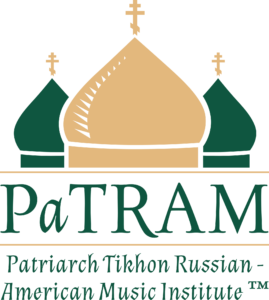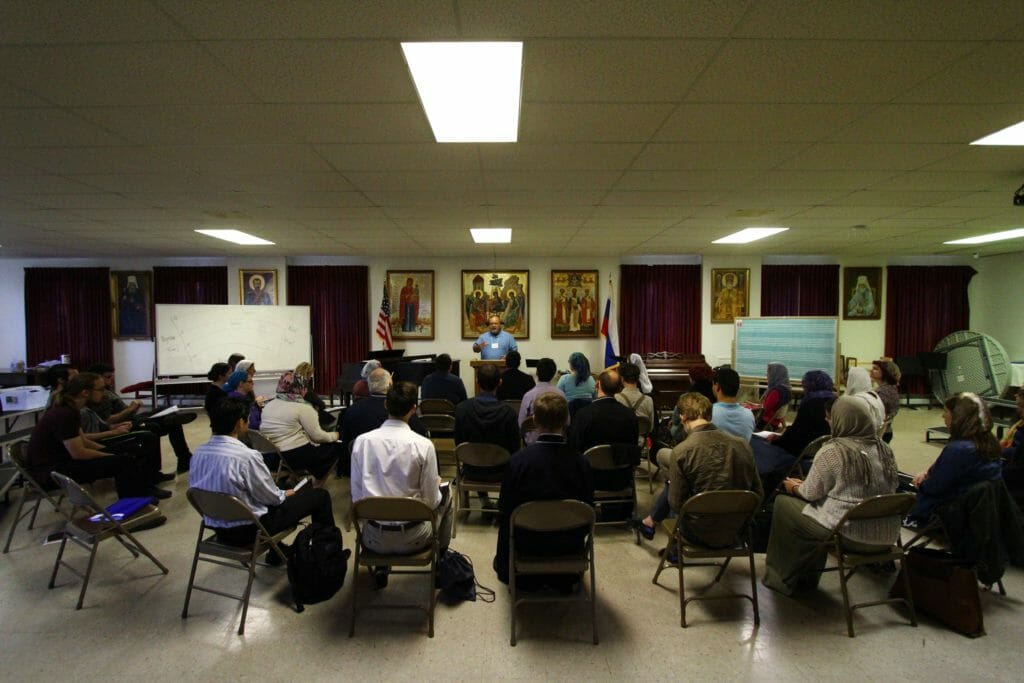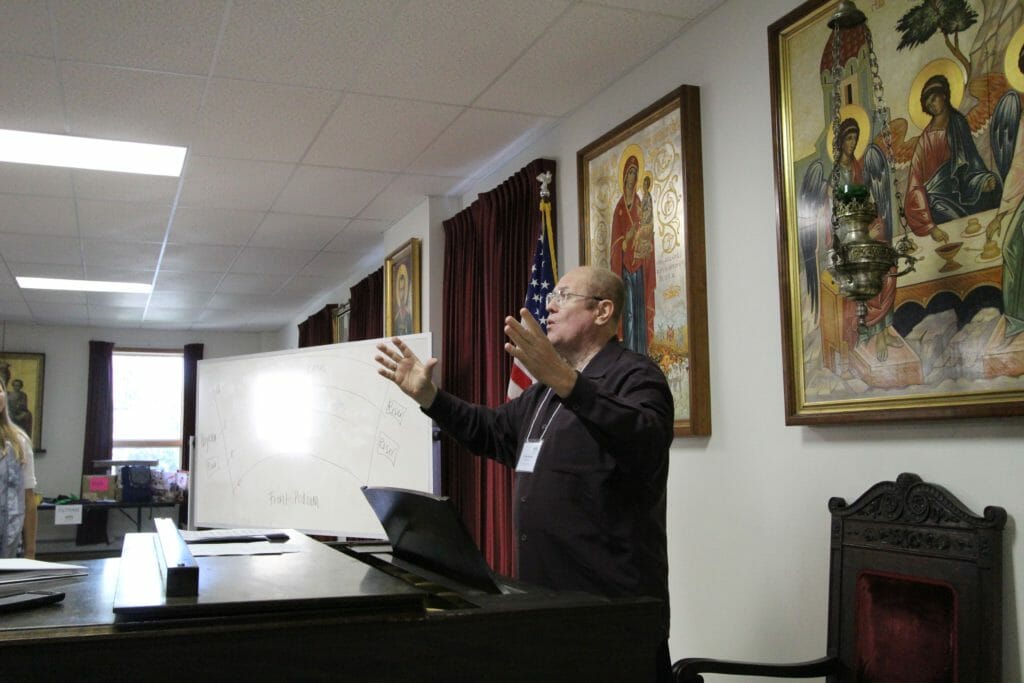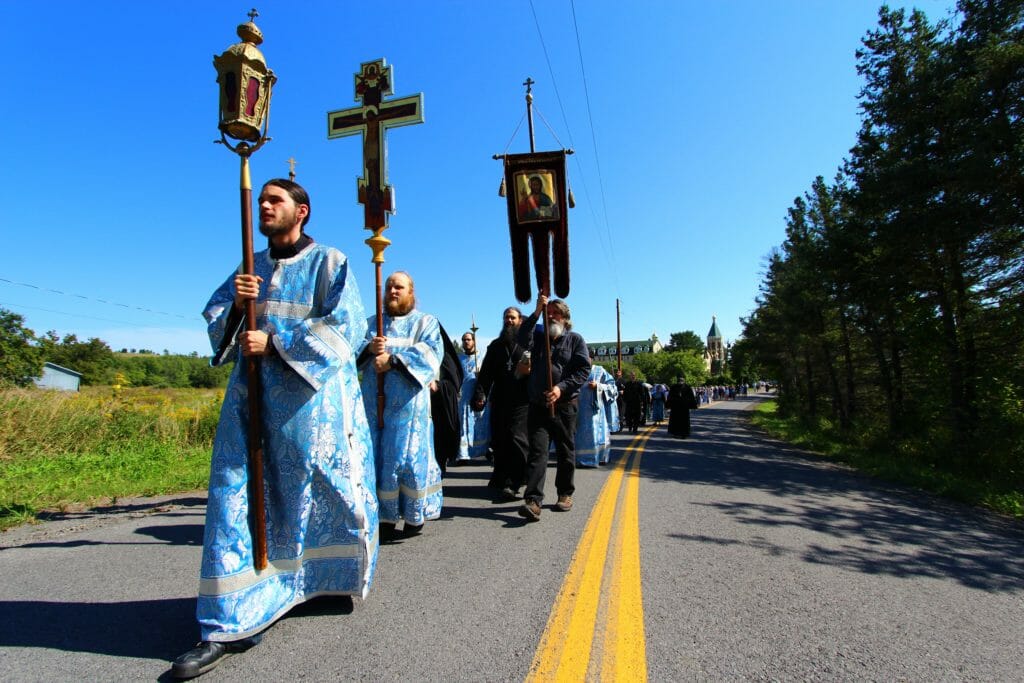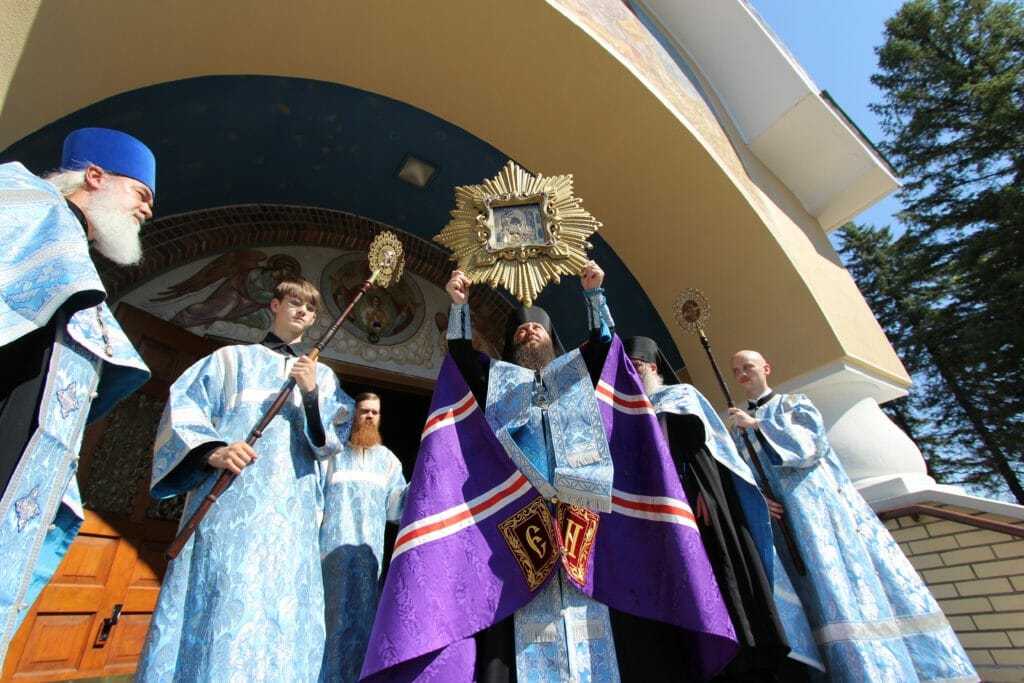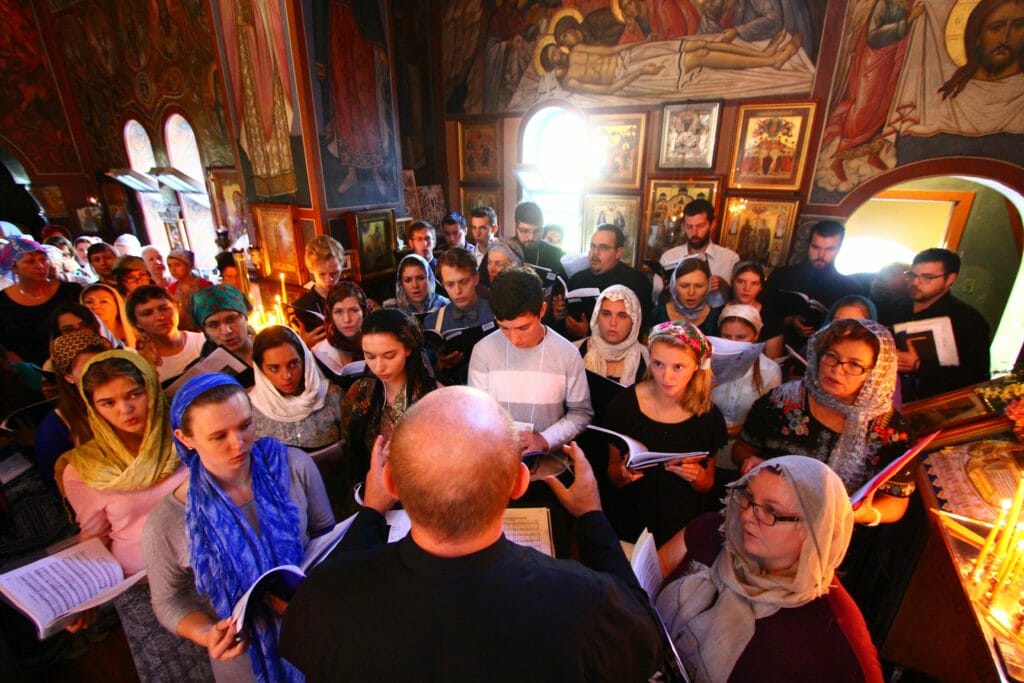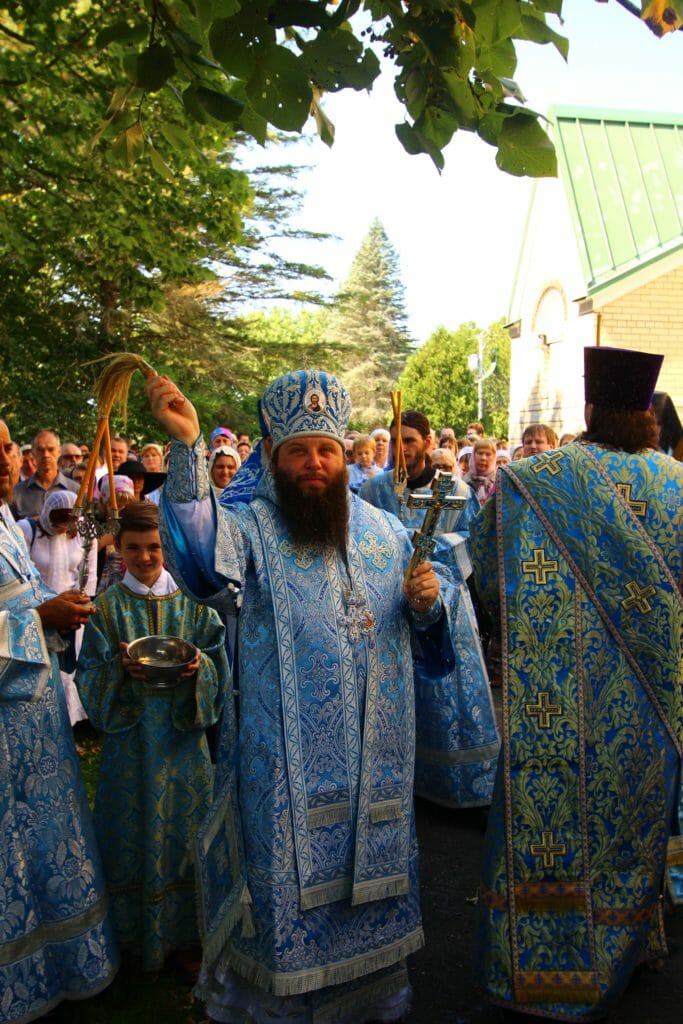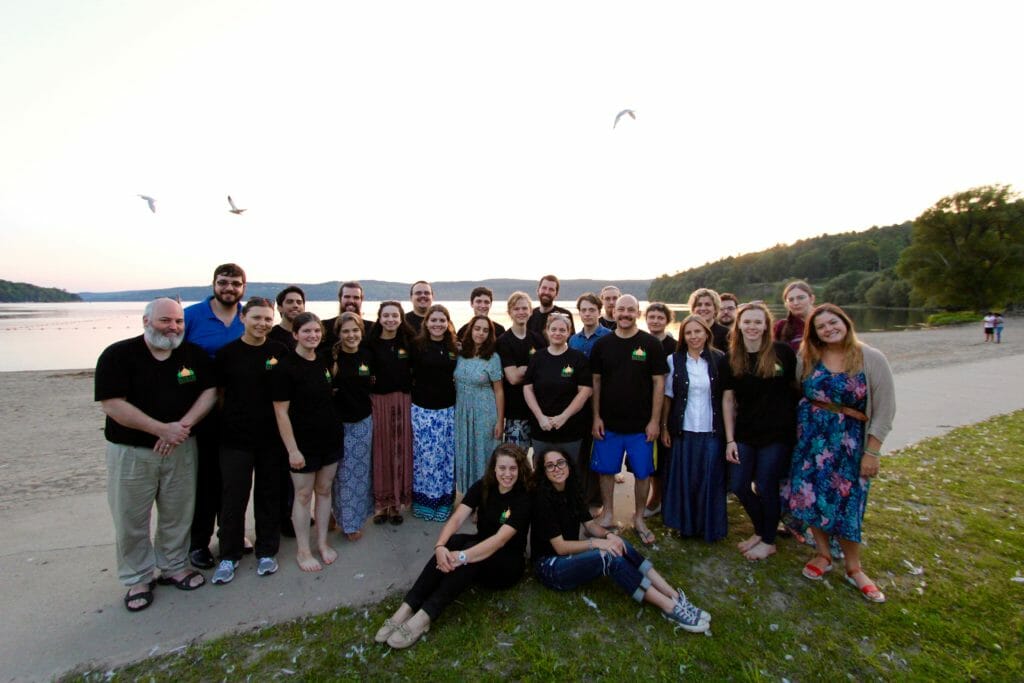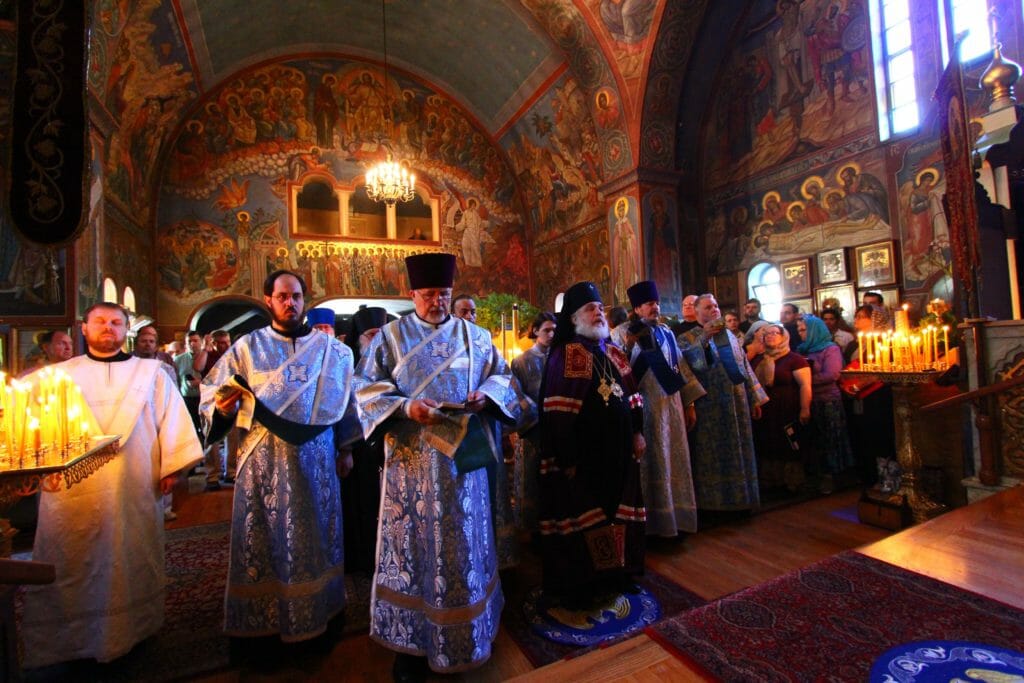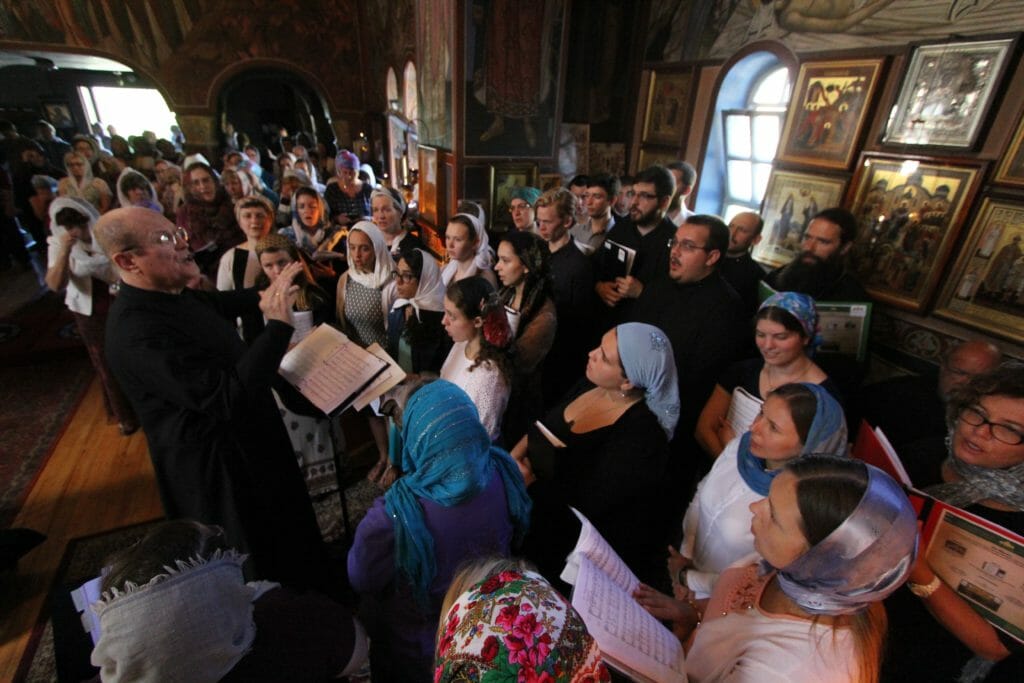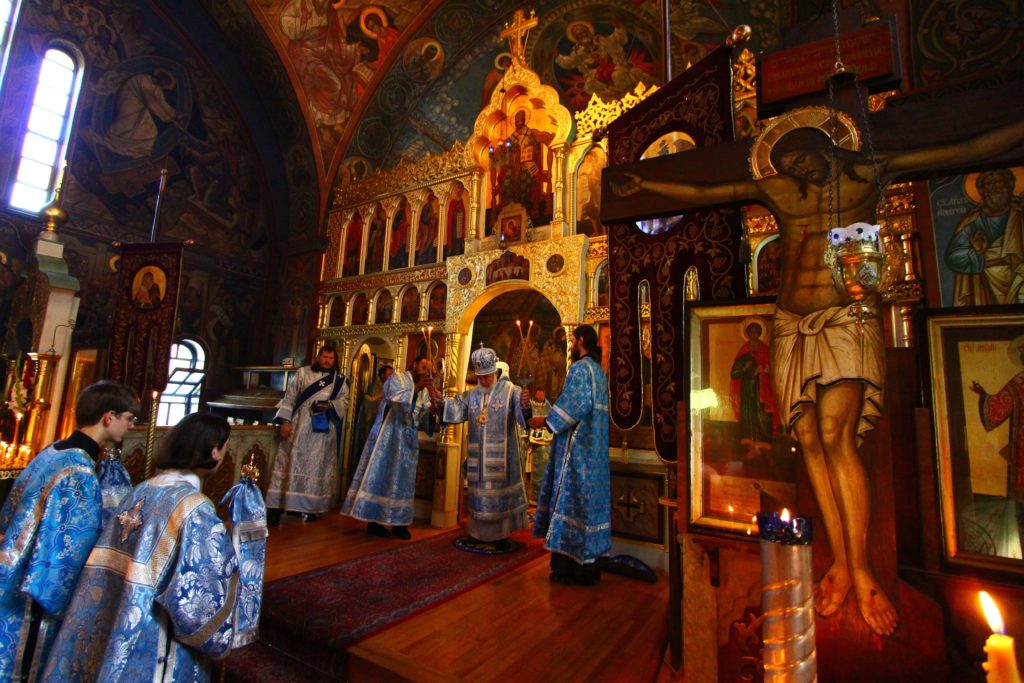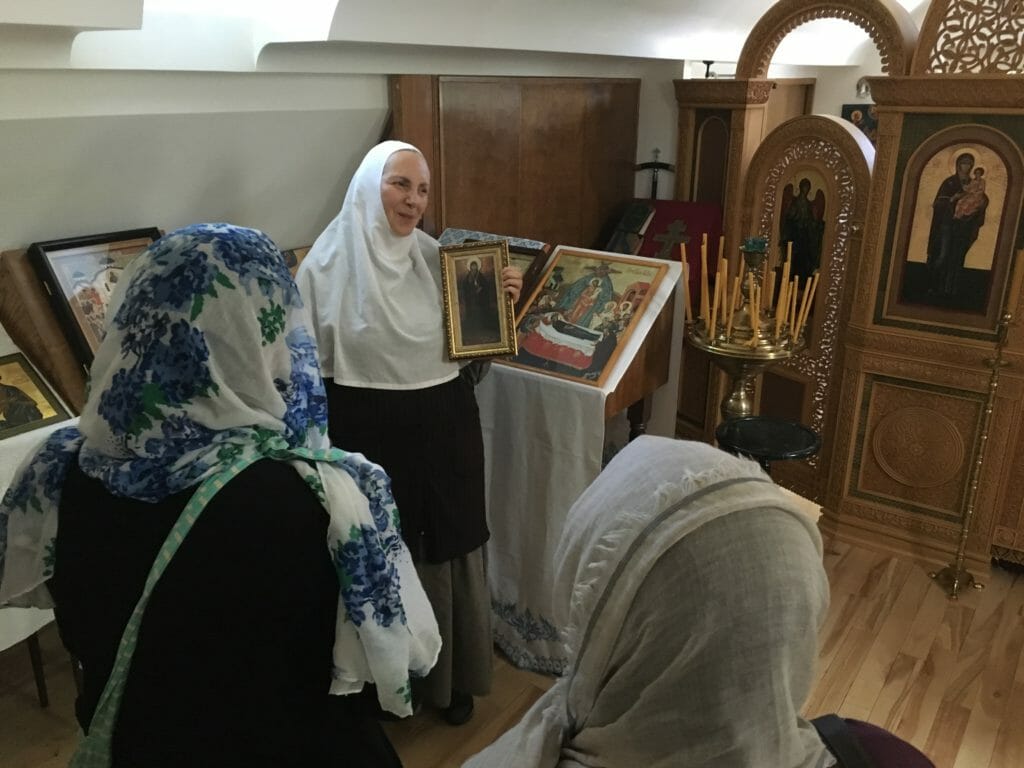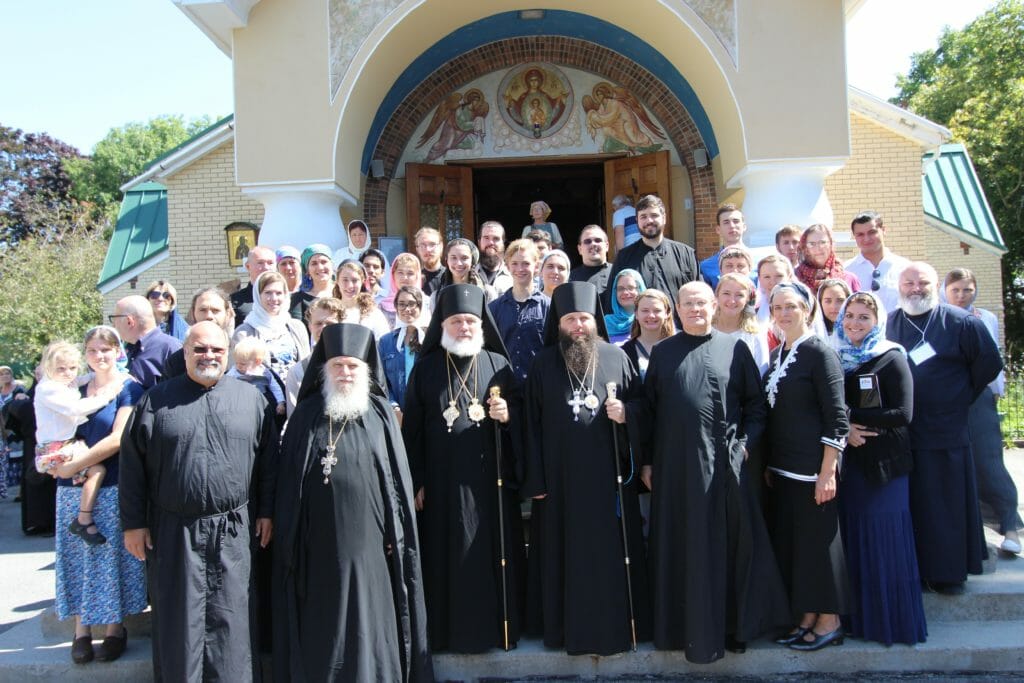By Jana Konchenko
How Russians and Americans Came Together in Song in Saratov
It was a unique project—three men’s choirs from Moscow, America, and Saratov gathered in our city to record a CD of sacred music. Forty of the best voices from the Archbishop’s Men’s Choir of the Metropolia of Saratov, the choir of the Moscow dependency of the Trinity St. Sergius Lavra, and the PaTRAM men’s choir. For a few days, they rehearsed for hours in the Saratov Seminary, then the combined choir sang the vigil and liturgy in the Church of the Protection of the Mother of God. How could these Russians and Americans manage to unify their sound in such a short period of time? And not merely to sing together, but to record a CD of over seventy minutes of music.
For a dose of spirituality, let’s go to Russia!
The initiators of the project were an American businessman (and vocalist) Alexei Lukianov and a professor-conductor from the Moscow conservatory, Vladimir Gorbik. Alexei Lukianov was born in New York, a descendant of Russian immigrants who moved to America nearly 100 years ago. His parents raised him in the Orthodox faith and from childhood instilled in him a love for the Russian language and culture. This was Alexei’s second visit to Saratov. A year and a half ago, he came here to discuss the particulars of this ambitious project with Longin, Metropolitan of Saratov and Vol’sk.
According to Alexei Valerievich, there are very few Orthodox churches in America with good choirs. There are almost no professional singers in these Orthodox choirs, and so the level of singing is generally quite low. Four years ago, Alexei Lukianov came to Russia on business and was astounded by the beauty and professionalism of the choirs in the churches of Moscow.
“It was the first week of Lent,” said Lukianov, “and every evening service had the reading of the canon of St. Andrew of Crete. For the first time in my life, I saw a church overflowing with people. The choir singing the service was the choir of the Moscow dependency of the Trinity St. Sergius Lavra, and many people wept, hearing such beautiful singing. I myself was touched and astounded by such voices, by such prayerful singing. After the service, I met the conductor of the choir, Vladimir Gorbik, and I began to ask him how he managed to gather such singers. Vladimir explained that 70% of his choir was amateur, and that he had personally taught them how to sing. It was then that I had the idea to establish training courses for singers. Vladimir had the experience of training singers, and I, as a businessman, had the ideas on how to organize it all.”
So, in 2013, the Patriarch Tikhon Russian American Musical Institute (PaTRAM) was established. PaTRAM’s professional choir is conducted by Vladimir Gorbik, and Alexei Lukianov is one of the singers.
“I have no formal musical training,” he said, “but, as it turned out, I am an octavist (a basso-profundo, capable of singing an octave lower than ‘normal’ basses). Vladimir Gorbik revealed this to me and offered that I sing in the choir. For me, this is a great honor.”
Alexei Lukianov believes that music and faith are closely linked. If parishioners hear bad singing, it gradually begins to irritate them, and prayer becomes difficult. But when a choir sings well, the atmosphere in the church changes immediately, and even the clergy find it easier to serve. This was the reason why PaTRAM was founded—to bring to America that which Russia already has, what Russians have long been accustomed to.
It is interesting to note that in addition to Russian emigres, there were some Americans singing in the choir as well. These singers not only knew no Church Slavonic, but they even knew no Russian. Of course, it was not easy for them, but they tried very hard.
“I think,” said Lukianov, “that they are all attracted by the high level of singing. This is why we are recording this CD of Chesnokov’s music here, in Saratov. Chesnokov’s music is well known in America, but Americans have no idea how well this music can be sung. It’s not just important to sing all the notes right, but to sing them beautifully and prayerfully. One can find many American choirs giving concerts of sacred music (including Orthodox music), but for a Russian person, such performances sound a bit strange. It’s not merely that they have trouble pronouncing the Church Slavonic text, but they often miss the soul of the music, the prayerfulness of it.”
Pelmeni in Florida, a Grammy-winner in Saratov
The Russian and American singers got along famously. Seven of the thirteen Americans spoke Russian. The rest had to have the text of the hymns translated. For some of these, this visit to Russia was the first of their lives. The size of the Church of the Protection of the Mother of God especially impressed them. After all, in America, most Orthodox churches are small. “Even just walking into such a large church is a pleasure. But to sing in it—that’s even better, of course. The acoustics are wonderful; everyone was thrilled,” admitted the businessman.
In America, fewer and fewer services are sung in Church Slavonic. In the churches of the Russian Orthodox Church Abroad, part of the services are sung in English, while the Orthodox Church of America has switched almost exclusively to English in services.
“I think that that’s right for America,” said Lukianov. “Children who were born in English-speaking families are beginning to go to church. For them, Church Slavonic sounds different than for children who were born in Russia. That which is understandable for their Russian counterparts is gibberish for them. Therefore, in America it makes sense to switch services to English.
“Here, in the Church of the Protection, we saw a wonderful public garden and playground for kids. In America, we don’t have that. In our parishes, people come to church and leave immediately after the service. Since there are few churches, the distances between them are rather large. So, for example, we live in Florida. It takes us half an hour to get to church. That’s not so bad, but if you were in church for vigil on a Saturday, then for liturgy on a Sunday, then it turns out you spent more than two hours in the car. Now we have a new parish, and we’re trying to institute weekly meals after services. We serve pelmeni—Americans really love Russian cuisine.”
Even though the new CD has not yet been released, it’s already gathering steam among both Russians and Americans. One of the American singers recorded the Great Doxology, sung during the vigil, on his iPhone and shared it on Facebook. Only a few days later, the video had over 5,000 views.
Grammy winner Blanton Alspaugh (with his company “Sound Mirror,” a very famous American sound production company) was the sound engineer for this project. He and his partner will both engineer and produce the recorded material. In about half a year, the CD will be ready. All that remains is to find a label and work on distribution.
Against the background of recent political difficulties between Russia and America, I couldn’t help but be interested in this subject. Do Americans exhibit anti-Russian sentiments? Lukianov is sure that among normal Americans, nothing could be further from the truth.
“Americans have nothing against Russians. The only fear one thing: that Putin will reconstruct the USSR. That’s what worries them. But if you ask any American if he thinks our countries should go to war, he will answer you, ‘Why and for what?’ Regular people don’t need war.”
Every little bit helps, but six octavists!
The musical director and conductor of the joint choir, Vladimir Gorbik, is famous not only in Russia but abroad as well. For Saratov, he is already a friendly face. For a long time, he’s had a good relationship with our ruling metropolitan, Longin. In 1996, when our bishop was still the abbott of the dependency of the Trinity St. Sergius Lavra in Moscow, Vladimir Gorbik received a blessing to conduct the male choir of the monastery.
The choir had great success. In June 1997, it traveled with patriarch Alexei II on a pilgrimage to the Holy Land. In May 2000, it received an award at the 19th International Festival of Sacred Music in Poland. Vladimir Gorbik himself received first place among all conductors of this festival.
In 2013, Gorbik became one of the creators and directors of the aforementioned PaTRAM.
According to Vladimir Alexandrovich, this institute provides distance learning both in Russian and English, and it has enrolled students from all over the world. There is even a student from Saratov. Instruction in such subjects as choral conducting, vocal technique, and musical theory is offered in an original way – by Skype. Sometimes, Gorbik flies to America and gives master classes there, sometimes Americans come to Moscow and study in the dependency of the Lavra. The Institute has already completed one concert tour along the East Coast of America. It has had a positive review in the New York Times and it has been the subject of a 26-minute documentary both in Russian and in English. The choir has also recorded another CD of sacred music.
“This Russian-American project which we have realized in Saratov is amazing and incredible, especially in our time, considering the tenseness of the political situation. But politics do not have to influence relationships between people. I have been in America many times, and all Americans are happy to associate with Russians. The same is true here. Our guys from Saratov have become very friendly with the Americans,” said Vladimir Gorbik, adding that the difference of mindset between Americans and Russians is a smoothed over by a common Orthodox worldview. After all, Orthodoxy surpasses national distinctions.
According to Vladimir Gorbik, only the best singers were chosen by audition. All the Americans sent in recordings of their voice parts, and Vladimir listened to them all. Of course, not all were accepted. As for the singers from Saratov, the conductor of the Archbishop’s choir, and the recently appointed director of the Saratov Conservatory, Alexander Zanorin, chose the local participants in the joint choir.
“The singers from Saratov are dear to me. I organized several master classes in the city. And I trust the choice of Alexander Zanorin; he chose talented and professional singers. In our joint choir, everything worked harmoniously. There were 10 first tenors, 10 second tenors, 10 baritones, and 11 basses, six of whom were octavists. There is no other choir in the world, nor has there ever been a choir in the world, with six octavists. It’s simply incredible – the octavists were gathered as if by magic!” said Gorbik, not even trying to hide his joy at such a rare find.
The recording was labor-intensive. Each session lasted four hours. The organizers of this project are planning a tour of the joint choir first in Russia, then in America.
“Saratov panorama” No. 28 (1058)
Jana Konchenko
По Русский => Однажды не в Америке
